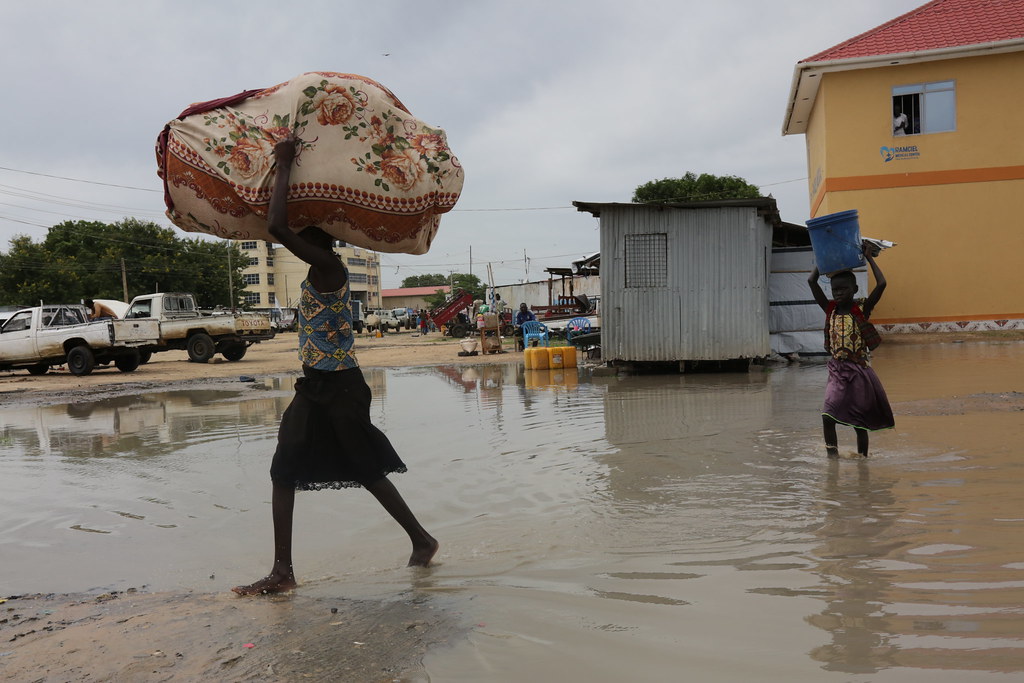World Water Forum 2024: Addressing Global Water Crises
Recent catastrophic events underscore the vulnerability of societies to water-related hazards, whether from excess or scarcity.

The World Water Forum, the preeminent international gathering in the water sector, has convened in Bali, Indonesia, amid a backdrop of severe flood and drought disasters globally. The forum, officially opened by Indonesian President Joko "Jokowi" Widodo, comes as Indonesia grapples with the aftermath of a deadly "cold lava" mudslide from Mount Merapi, triggered by heavy rains.
Global Water-Related Disasters
Recent catastrophic events underscore the vulnerability of societies to water-related hazards, whether from excess or scarcity. Historic floods have ravaged Brazil and East Africa, while flash floods have claimed lives in Afghanistan. Concurrently, Central America and southern Africa are enduring extreme drought conditions. These disasters highlight the urgent need for effective water management and early warning systems.
Asia: The Hardest Hit
Asia remains the region most affected by weather, climate, and water-related disasters. In 2023, 80% of these events were due to floods and storms, resulting in over 2,000 deaths and directly affecting nine million people. Globally, 3.6 billion people face inadequate water access at least one month per year, a figure projected to exceed 5 billion by 2050.
Ministerial Declaration and SDG 6
A ministerial declaration from the forum calls for more efficient and integrated water resources management, increased financing for climate change adaptation, biodiversity, and ecosystem conservation, and accelerated progress toward Sustainable Development Goal 6, which aims to ensure safe and affordable drinking water and sanitation for all.
Early Warnings for All
WHO Secretary-General Celeste Saulo emphasized the importance of the Early Warnings for All initiative during high-level panels at the forum. This initiative prioritizes early warning systems to mitigate the impacts of water-related disasters. For example, Mozambique's focus on early warning systems after Cyclone Idai in 2019 significantly reduced casualties and economic losses during Cyclone Freddy in 2023. Similarly, accurate forecasts and community mobilization saved thousands of lives during Cyclone Mocha in 2022 in Bangladesh and Myanmar.
Hydrology Action Plan
The World Meteorological Organization (WMO) is working to bolster hydrological services as part of climate change adaptation efforts. A significant challenge is the lack of data on current and future water resources. Currently, 60% of WMO member states report declining capabilities in hydrological monitoring. The WMO's Hydrology Action Plan includes eight long-term goals:
No Surprises by Floods: Ensuring communities are not caught off guard by floods.
Drought Preparedness: Preparing everyone for drought conditions.
Support for Food Security: Using hydroclimate and meteorological data to bolster food security.
High-Quality Data: Providing robust data to support scientific research.
Scientific Basis for Hydrology: Ensuring that operational hydrology is grounded in solid science.
Knowledge of Water Resources: Thoroughly understanding global water resources.
Sustainable Development: Supporting sustainable development with reliable hydrological information.
Water Quality: Ensuring comprehensive knowledge of water quality.
Building Resilience and Partnerships
The forum underscores the critical role of operational hydrology and national meteorological and hydrological services in climate and water resilience. Partnerships and collaborative efforts are essential to achieving the Sustainable Development Goals and building resilience in the face of a rapidly changing climate.
The World Water Forum, held every three years, is a platform for stakeholders from various sectors to discuss and collaborate on water-related issues. This year's theme, "Water for Shared Prosperity," reflects the collective effort needed to address global water challenges and promote sustainable development.
- READ MORE ON:
- World Water Forum 2024
- Jokowi
- Indonesia










